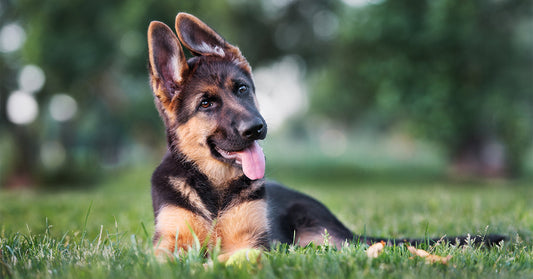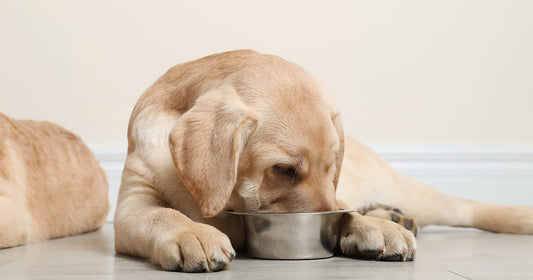Properly socializing a puppy is essential for raising a well-adjusted, confident dog. With this blog, Native® Dog Food can help equip you with the knowledge and techniques needed to ensure your puppy develops the skills necessary to thrive in various environments. From understanding the fundamentals of puppy socialization, to tackling common challenges, Native has effective strategies that can make this journey enjoyable for both you and your companion.
Understanding Puppy Socialization
Puppy socialization is the process of exposing your young dog to a variety of experiences, environments, people and other pets in a positive manner. Socializing your puppy is a fundamental aspect of their early development, playing a pivotal role in shaping their behavior and temperament. By exposing them to new things, you help them learn to navigate the world with confidence. This exposure not only fosters positive interactions but also diminishes the likelihood of developing aggressive or fearful behaviors later in life.
Signs Your Puppy is Ready to Start Socializing
The socialization stage of a puppy’s life is typically around 3-14 weeks of age. This stage is when puppies are particularly receptive to new experiences, making it an ideal time to introduce them to diverse situations. When looking for signs of readiness in your puppy, look for the following indicators that your puppy is ready to socialize.
- A curious and relaxed demeanor.
- Willingness to approach new people or other dogs.
- Ability to adapt to new sounds and sights without excessive fear or anxiety.
- Excitement or eagerness, such as wagging their tail.
By introducing your puppy to new experiences during this critical development window, you can equip them with the skills they need to handle various stimuli without fear or aggression.
How Do I Socialize My Puppy?
Socializing your puppy should always be in a gradual approach, starting with familiar settings and then later progressing to more bustling locations. By gradually and slowly introducing new things to your companion, you help build trust.
Start by introducing them to different sounds, sights and smells, allowing them to explore at their own pace. When meeting new people, have them kneel and offer your puppy a treat to create a positive association. Next, you may begin looking for safe environments and controlled situations where your puppy can interact with other dogs in a calm manner. These could include puppy classes, parks, pet-friendly stores, or playdates with friendly dogs. Always supervise these interactions to ensure they remain positive and stress free.
Challenges of Socializing a Puppy
Puppy socialization is a vital part of your pet’s development, but it doesn’t come without its own set of challenges. One of the most common issues owners may come across is fearful or aggressive behaviors. Puppies may react negatively to unfamiliar sights, sounds or people, which can lead to anxiety. It’s essential to always approach these situations with patience and understanding. Gradual exposure to the experience, paired with positive reinforcement can help alleviate these fears over time.
It's not uncommon for owners to also experience socialization setbacks. Just as puppies can quickly adapt to new situations, they can also regress. Sudden changes in their environment, such as moving to a new home, changes in routine or a traumatic event can trigger these setbacks. It’s important to stay persistent and patient among these challenges as puppies that are not adequately socialized may grow into adult dogs that experience heightened anxiety or aggression.
The Best Treats for a Puppy
Remaining consistent with exposing your puppy to new experiences, coupled with praise and rewards for positive behavior is key. Treats are a great reinforcement tool that encourages bravery. Native Puppy Food can be used as high-quality training treats that keep your puppy motivated. The right treats not only make training sessions more enjoyable but also help your puppy associate learning with positive experiences. These treats are perfect for rewarding positive behavior and reinforcing commands.
Always remember that socializing your puppy is an ongoing journey. Patience is key as every puppy is unique and may require different amounts of time to adjust to new experiences. The long-term effects of proper socialization cannot be overstated. A well-socialized puppy is more likely to become a well-adjusted dog, capable of thriving in different environments. This foundation not only enhances the quality of their life but strengthens the bond between you and your pet. By investing time in socializing your puppy now, you foster a happy, confident canine companion that is well-trained, balanced and adaptable. Learn more about active puppies in other Native resources.




